Catholic Church
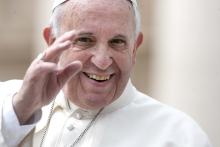
Despite criticism from conservative opponents who question his approach to church doctrine and his reform of the Vatican Curia, the pope said he had never lost his peace of mind.
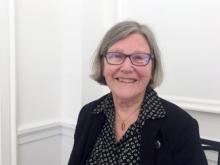
“The effort to keep the church from stopping this sort of thing is shocking,” she added. “It is about male power and male image, not people’s stories. The real trouble is they have defined their power as spiritual leadership and they don’t have a clue about spiritual life.”
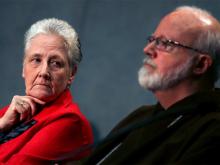
In a major setback for the pope, Collins on Mar. 1 announced that she had resigned from the Pontifical Commission for the Protection of Minors, established by the pontiff in 2013 to counter abuse in the church.
She said the pope’s decision to create the commission was a “sincere move,” but there had been “constant setbacks” from officials within the Vatican.
“There are people in the Vatican who do not want to change, or understand the need to change,” Collins said in a telephone interview from Dublin.

On Feb. 8, Guadalupe Garcia de Rayos went to Mass and said a prayer before voluntarily going to her biannual appointment at the immigration office in Phoenix.
Guadalupe knew that, because of President Trump’s executive order on immigration enforcement, she was now considered a high priority for deportation and could be sent back to Mexico, leaving her two teenage children, both of them U.S. citizens.

Pope Francis has condemned clerical sex abuse as an “absolute monstrosity,” and asked victims and their families for forgiveness on behalf of the Catholic Church.
In an unusual move, the pontiff’s comments were published as a preface to a new book by Daniel Pittet, a Swiss victim who was sexually abused for four years by a priest when he was a child.
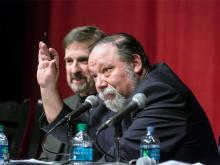
For Catholics, the key to working collaboratively with Pope Francis, on issues from mass migration to climate change to Hispanic evangelization, may be found in a controversial movement that many left for dead long ago: liberation theology.
That message reverberated, from Feb. 6 to Feb. 10, through the halls of Boston College and a nearby retreat center, as nearly 40 theologians gathered from across the Spanish-speaking world to discuss the movement’s future with its founding figures.
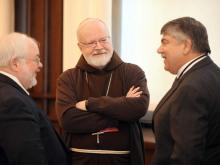
For much of its long history in the U.S., the Catholic Church was known as the champion of the working class, a community of immigrants whose leaders were steadfast in support of organized labor and economic justice – a faith-based agenda that helped provide a path to success for its largely working-class flock.
In recent decades, as those ethnic European Catholics assimilated and grew wealthier, and as the concerns of the American hierarchy shifted to battles over moral issues, such as abortion and gay marriage, traditional pocketbook issues took a back seat.
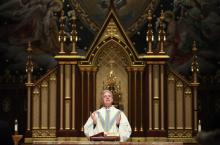
It has also been five months since Myers suspended me from all priestly ministry, for my “disobedience” in continuing to be involved with that same work against LGBT discrimination.
That’s given me a lot of time to think about what would happen when a new archbishop came to Newark, and what my future would be.

If I’ve learned anything since my time in Rome, it’s that people — not just Catholics — are hungering to connect peace with justice. This is why those of us who traveled to Rome just before the election, accompanied by Stockton, Calif., Bishop Stephen Blaire, and Houma-Thibodaux, La., Bishop Shelton Fabre, are preparing for a regional WMPM meeting in Modesto, Calif., in February.
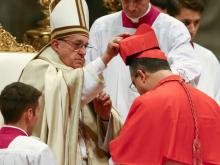
At a solemn ceremony in St. Peter’s Basilica, to elevate 17 new cardinals, Pope Francis, on Nov. 19, delivered a ringing plea to the world, and his own Catholic Church, to reject “the virus of polarization and animosity," and the growing temptation to “demonize” those who are different.
The pontiff’s address came across as a powerful, gospel-based indictment of the populist and nationalist anger roiling countries around the world, displayed most recently by the stunning election of Donald Trump as president of the U.S.
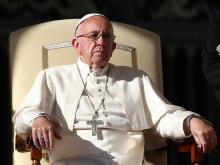
These new cardinals include prelates from 11 dioceses and six countries that have never before had a cardinal, and from places far outside the traditional European orbit of ecclesiastical influence: Albania, for example, plus the Central African Republic, Lesotho, Mauritius, Bangladesh, Malaysia, and Papua New Guinea.
But the real surprise in these picks, as in past appointments, is that they came as a complete surprise to many of the new cardinals themselves, and to the pope’s closest collaborators.
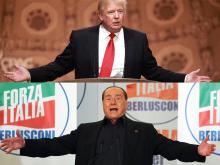
Donald Trump’s victory in the 2016 presidential election has few parallels in the history of contemporary politics in the Western world.
But the closest one is familiar to me: Silvio Berlusconi, the media tycoon who was elected prime minister of Italy — my homeland — for the first time on March 27, 1994 and who served four stints as prime minister until 2011.
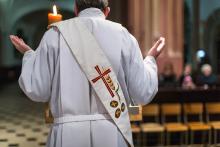
The Rev. Frank Pavone, a leading anti-abortion crusader and Donald Trump supporter, was jubilant on Nov. 9 after his candidate’s surprising win in the presidential race.
But the head of the Staten Island-based Priests for Life group is also facing a stern rebuke and investigation from his bishop, over Pavone’s shocking election eve video, in which he posed with an aborted fetus on an altar while delivering a 44-minute appeal to voters to elect the Republican nominee.
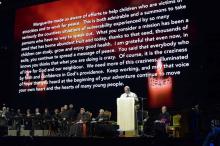
Even by this pope’s standards it was a bold move.
Francis, the spiritual leader of more than a billion Roman Catholics across the globe, this week traveled to Sweden, one of the most secularized countries in Europe, to take part in events marking 500 years since Martin Luther kickstarted the Protestant Reformation.
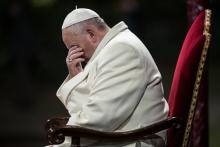
Pope Francis offered no new position on the issue of women’s ordination while on a flight returning from Sweden. When asked if the Catholic Church may one day allow women priests and bishops, he responded, as done previously, that the question was already settled in 1994 with St. John Paul II

Some Protestant churches mark the day as Reformation Sunday, and celebrate it on the Sunday just before, or just after, Oct. 31. More often than not, the hymns sung in church that day include “A Mighty Fortress Is Our God,” with words and music composed by Luther himself. But most members of Lutheran churches — the direct descendants of Luther’s movement — wait until Oct. 31. And that, as we know, is also Halloween, and has led to some creative celebrations for kids.
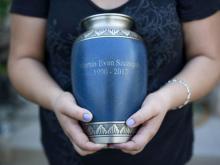
Catholics can be cremated under certain conditions, the Vatican has said, but loved ones should not scatter the ashes at sea, or on land, or into the wind, nor should they keep them in mementos or jewelry.
Instead, say new guidelines released on Oct. 25, the remains should be stored “in a sacred place” that “prevents the faithful departed from being forgotten” and “prevents any unfitting or superstitious practices.”
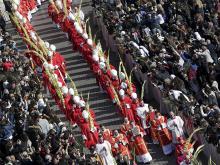
With these picks, the third round of cardinal appointments Francis has made since he himself was elected pope in 2013, he did a number of nontraditional things that have become almost customary for him:
First of all, he moved the church’s center of gravity further away from the Old World and toward the “peripheries,” as he says, by selecting more cardinals (six total) from Africa, Asia, and Oceania than from Europe (five).
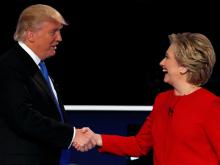
“The presidential nominees will share the dais with Timothy Cardinal Dolan, Archbishop of New York, and they will deliver the evening’s speeches in the spirit of collegiality and good-humor that has become a hallmark of the gala,” said a statement issued Sept. 27 by the New York Archdiocese and the foundation that runs the event.
The Oct. 20 dinner “honors a cause that transcends the polarizing political rhetoric of the day and exemplifies the vision of Gov. Alfred E. Smith, known as ‘The Happy Warrior,’ for his ability to maintain his positive outlook even as he tackled the pressing social issues of his day,” the statement said.

“This is the first I know of an evangelical seminary with a free-standing requirement for graduation to participate in this kind of discrete training. There are other seminaries where sexual boundary, sexual abuse issues are part of another course or class. But it would not be a free-standing event, as Dallas is doing.”